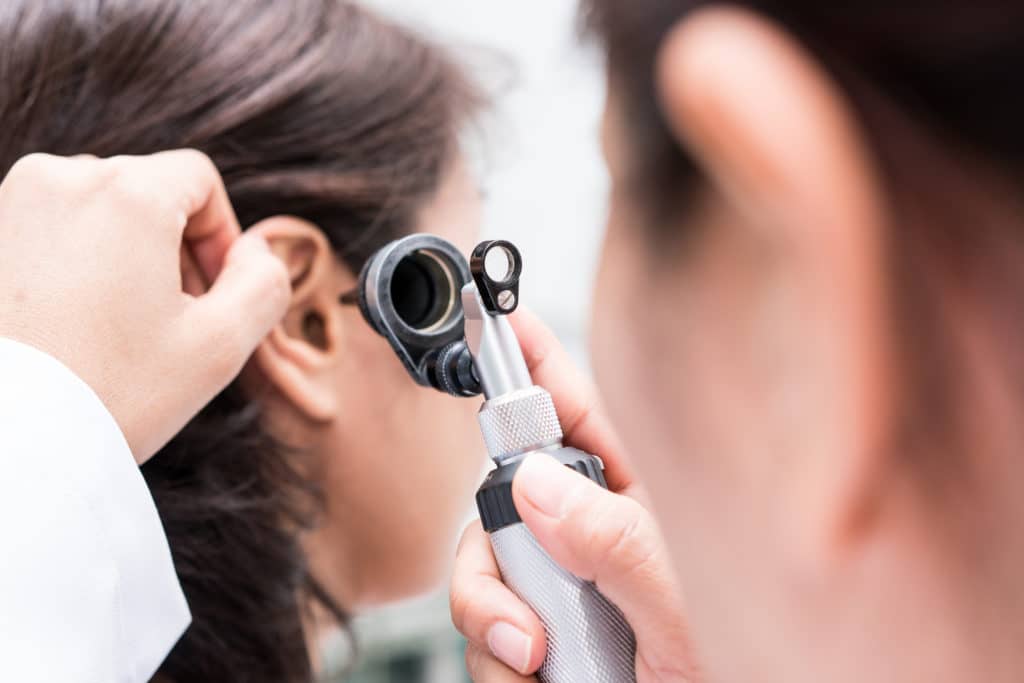
Do you find it increasingly harder to track conversations at family functions? Many causes can lead to hearing loss such as age, trauma, viral infections, and more.
Depending on the cause behind your hearing loss, it could be temporary or permanent.
Immediate Hearing Loss?
If you are experiencing rapid or sudden hearing loss in one or both ears, do not rule out any causes we have listed below — seek immediate help from a hearing professional right away. It could be inflammation, which can be treated with steroids. However, without treatment, this hearing impairment can become permanent. So make sure you take action the moment you notice a significant change in your hearing.
Should I seek professional help immediately?
Below is a list we put together to help you know if you should seek immediate medical treatment (please make sure to always contact your medical provider for guidance):
- Have you recently had a cold or ear infection?
- Did you exercise strenuously lately?
- Have you or are you feeling high stress?
- Were you recently exposed to long periods of loud noise? (i.e shooting, machinery, concerts or sporting events)
If you can answer no to all of these questions, you could be experiencing sudden sensorineural hearing loss, which requires timely medical care.

Common causes of temporary hearing loss
Generally, temporary hearing loss happens gradually over the course of a few days or weeks before you notice it. Some of the more common causes behind temporary hearing impairment include:
Ear infection
Ear infections can cause a conductive hearing loss. Infection in the middle ear can cause a build-up of fluid, obstructing the movement of the eardrum and the small bones attached to it. This is most common in children, but it can occur at any age. Ear infections will typically fix themselves, it’s never a bad idea to see your doctor just in case you are in need of antibiotics.
Excessive earwax
Though earwax or cerumen, will usually fall out of your ears on its own or with soft washing, it can sometimes build up and block the ear canal. This can cause an array of issues ranging from tinnitus to hearing loss. If the wax is not easily removed from gently washing with a warm washcloth, consult your hearing care professional. You should never try to remove your ear wax with a sharp object including cotton swabs, these can push the wax deeper into your canal or even worse perforate your eardrum and cause permeate damage.

Loud Noise
If you have been exposed to loud noises, such as a sporting event, a loud concert, or even while operating loud yard equipment. It’s not uncommon to experience temporary hearing loss or tinnitus. We refer to this type of hearing loss as noise-induced hearing loss. Your hearing will most likely return to normal afterward, you should make sure to protect your hearing by wearing earplugs, earmuffs, or consider purchasing a pair of custom-fit earplugs if you are exposed frequently. Repeated exposure to loud noise can cause permanent damage.
Strenuous exercise or elevated stress
When you exercise above your normal fitness level, it is not uncommon to experience temporary loss of hearing. While your hearing will generally return to normal within a few hours, make sure to see your doctor if symptoms continue. Elevated levels of stress have also been known to cause hearing problems or tinnitus.
Well-known causes of permanent hearing loss

Health Conditions (add health conditions photo)
There is a myriad of health conditions that can cause permeate damage to your hearing, such as genetic disorders, autoimmune conditions like Meniere’s disease, trauma to the head, and viral infections such as mumps. Many medications can cause hearing loss too. Read more about some of the top causes of hearing loss.
Age-related hearing loss
Another common form of sensorineural hearing loss is presbycusis, otherwise known as age-related hearing loss. Many people will notice by age 75 they’re not hearing as well as they used to. This form of hearing loss is typically gradual and not abrupt. Regardless, Taking care of your hearing loss is important, as untreated hearing loss can lead to a list of health conditions including dementia.
Prolonged exposure to excessive noise
A small blast of loud noise may worsen your hearing temporarily, repeated exposures to loud sounds can lead to irreversible effects. In fact, this is the most common form of sensorineural hearing loss, which is permanent. Sensorineural refers to the ears’ nerves and small sensory hair cells that can easily become damaged.
Seeking help for your hearing loss
If you suspect any degree of hearing loss, we recommend you see a doctor or hearing care professional. They can determine if your hearing loss is temporary or permanent and recommend the best course of treatment based on your specific information.
For more information or if feel you may have trouble hearing take our online hearing test. Or reach out to one of our highly trained hearing health care professionals today.
